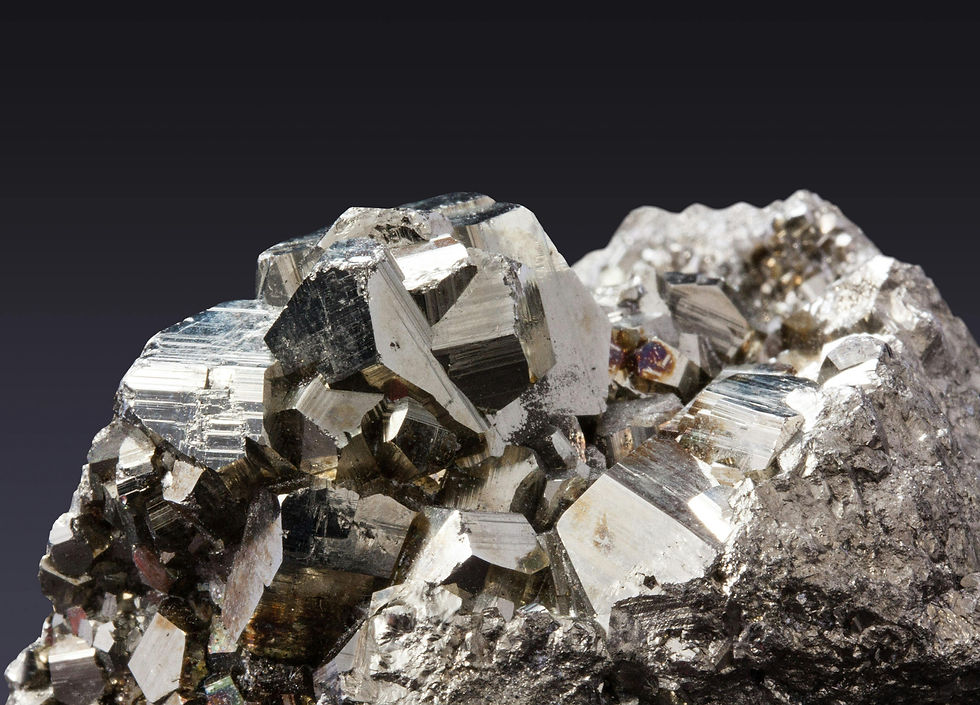Taming the sweet tooth: Evidence-based strategies to curb sugar cravings
- Healthfully Myself
- Dec 29, 2023
- 4 min read
Updated: Jan 11, 2024
Sugar cravings can be a formidable adversary, often tempting us to indulge in sweet treats that may not align with our health goals. However, understanding the science behind sugar cravings and implementing evidence-based strategies can empower us to overcome the allure of sugary delights. This article explores research-backed methods to curb sugar cravings and promote a healthier relationship with sweets.

Understanding sugar cravings
Research indicates that sugar activates the brain's reward system, releasing dopamine, a neurotransmitter associated with pleasure and reinforcement. Over time, frequent sugar consumption can lead to tolerance, requiring higher amounts to achieve the same pleasurable effect. Fluctuations in blood sugar levels can also trigger sugar cravings. Consuming sugary foods causes a rapid spike in blood sugar, followed by a subsequent crash, leading to cravings for more sugar.
Strategies to Curb Sugar Cravings
Balanced meals with protein and fibre:
Studies suggest that meals rich in protein and fibre help stabilise blood sugar levels, reducing the likelihood of intense sugar cravings.
Include sources of lean protein (chicken, fish, legumes) and high-fibre foods (whole grains, vegetables) in your meals.
Choose healthy snacks:
Opt for nutrient-dense snacks to satisfy sweet cravings without the added sugars. Examples include fresh fruit, yoghurt with berries, or a handful of nuts.
Research shows that consuming fruits with fibre helps mitigate the impact of sugar on blood sugar levels.
Stay hydrated:
Dehydration can sometimes be mistaken for hunger, leading to unnecessary snacking, including sugary treats.
Drinking an adequate amount of water throughout the day can help keep cravings at bay.
Mindful eating practices:
Mindful eating, characterised by paying attention to the sensory experience of eating, has been associated with reduced cravings.
Research suggests that mindful eating can lead to improved food choices and better appetite regulation.
Adequate sleep:
Lack of sleep is linked to increased cravings for sugary and high-carbohydrate foods.
Prioritise a consistent sleep schedule and aim for 7-9 hours of quality sleep each night.
Regular exercise:
Physical activity has been shown to influence neurotransmitters associated with mood and cravings.
Engaging in regular exercise can positively impact overall well-being and help reduce sugar cravings.
What about supplements?
While dietary supplements are not a substitute for a balanced and healthy diet, some supplements may be associated with helping to reduce sugar cravings. Here are some supplements that have been suggested to potentially help with reducing sugar cravings, based on limited research:
1. Chromium picolinate:
Some studies suggest that chromium picolinate may help regulate blood sugar levels and improve insulin sensitivity. Balanced blood sugar levels can contribute to reduced sugar cravings (Anton et al., 2008).
2. L-Glutamine:
L-glutamine is an amino acid that may play a role in reducing sugar cravings (Jafari-Vayghan et al., 2020). It is believed to support stable blood sugar levels and contribute to overall gut health.
3. 5-HTP (5-Hydroxytryptophan):
5-HTP is a precursor to serotonin, a neurotransmitter that regulates mood and appetite. Some studies support that 5-HTP supplements may help control cravings, including those for sugar (Cangiano et al., 1998).
4. Magnesium:
Magnesium deficiency has been linked to sugar cravings. Ensuring an adequate intake of magnesium may support overall health and potentially help in managing cravings (Yanovski, 2003).
7. Probiotics:
Gut health is linked to various aspects of well-being, including cravings. Some studies suggest that probiotics may influence the gut-brain axis and impact food cravings (Alcock, 2014).
8. Cinnamon:
While primarily a spice, cinnamon supplements have been explored for their potential to improve insulin sensitivity and regulate blood sugar levels, which may indirectly help reduce sugar cravings (Kizilaslan & Erdem, 2019).
Armed with insights from scientific research, it's clear that managing sugar cravings involves a holistic approach. By adopting evidence-based strategies such as balanced meals, mindful eating, and maintaining a healthy lifestyle, individuals can take significant steps towards curbing sugar cravings and fostering a more nourishing relationship with food. Remember, small, sustainable changes over time can lead to lasting improvements in overall health and well-being.
Alcock, J., Maley, C. C., & Aktipis, C. A. (2014). Is eating behavior manipulated by the gastrointestinal microbiota? Evolutionary pressures and potential mechanisms. BioEssays : news and reviews in molecular, cellular and developmental biology, 36(10), 940–949. https://doi.org/10.1002/bies.201400071
Anton, S. D., Morrison, C. D., Cefalu, W. T., Martin, C. K., Coulon, S., Geiselman, P., Han, H., White, C. L., & Williamson, D. A. (2008). Effects of chromium picolinate on food intake and satiety. Diabetes technology & therapeutics, 10(5), 405–412. https://doi.org/10.1089/dia.2007.0292
Cangiano, C., Laviano, A., Del Ben, M., Preziosa, I., Angelico, F., Cascino, A., & Rossi-Fanelli, F. (1998). Effects of oral 5-hydroxy-tryptophan on energy intake and macronutrient selection in non-insulin dependent diabetic patients. International journal of obesity and related metabolic disorders : journal of the International Association for the Study of Obesity, 22(7), 648–654. https://doi.org/10.1038/sj.ijo.0800642
Jafari-Vayghan, H., Varshosaz, P., Hajizadeh-Sharafabad, F., Razmi, H. R., Amirpour, M., Tavakoli-Rouzbehani, O. M., Alizadeh, M., & Maleki, V. (2020). A comprehensive insight into the effect of glutamine supplementation on metabolic variables in diabetes mellitus: a systematic review. Nutrition & metabolism, 17, 80. https://doi.org/10.1186/s12986-020-00503-6
Kizilaslan, N., & Erdem, N. Z. (2019). The Effect of Different Amounts of Cinnamon Consumption on Blood Glucose in Healthy Adult Individuals. International journal of food science, 2019, 4138534. https://doi.org/10.1155/2019/4138534
Yanovski, S. (2003). Sugar and fat: Cravings and aversions. The Journal of Nutrition, 133(3), 835-837. https://doi.org/10.1093/jn/133.3.835S.



Comments